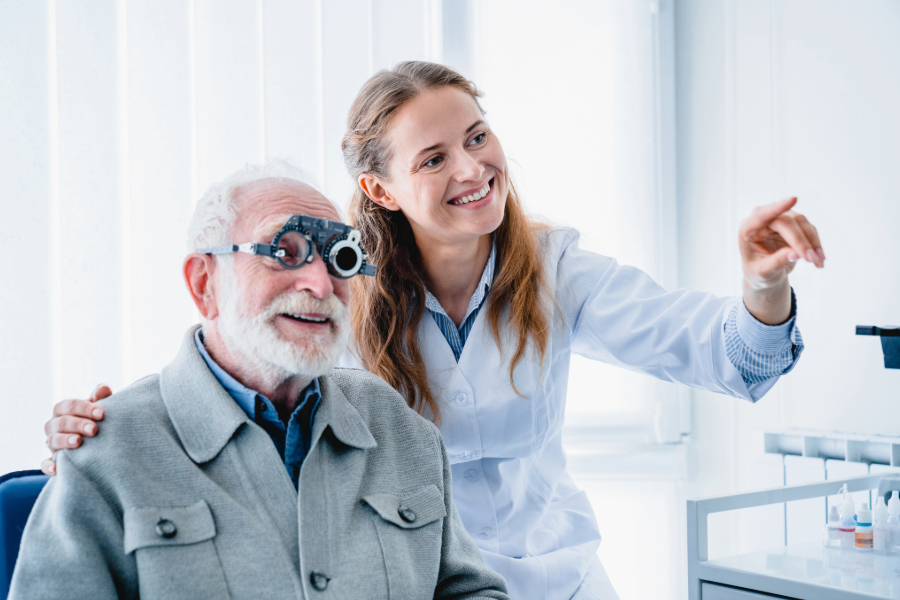See clearly, stay steady: How eye exams prevent falls in older adults
Posted on February 6, 2025 in Healthy You

Your body changes with age — and that includes your vision. Did you know that even small changes in vision can double your risk of falling?1 This is especially important for adults over 65, as falls are the number one cause of injury-related death for this age group.1
The link between vision and fall risk
Vision plays a vital role in your ability to move and balance. Changes in vision can happen slowly, so you might not even realize your eyesight has changed. But even small vision impairments can make it harder to move safely, which increases your likelihood of tripping or misjudging steps.
This is a growing concern. According to a 2023 policy statement from the American Public Health Association (APHA), the prevalence of visual impairment among older adults is expected to double over the next 30 years due to aging, diabetes and other chronic conditions.1
How eye exams save lives
The good news is that 40% of vision loss is preventable or treatable with early care.1 Yearly, in-person comprehensive eye exams can detect common age-related eye conditions, such as cataracts, glaucoma, diabetic retinopathy and macular degeneration. Early disease detection is crucial to helping seniors maintain mobility and reduce their risk of falling, because eye diseases respond better to treatment when they are discovered early.
The Centers for Disease Control and Prevention (CDC) recommends annual eye exams for adults age 65 or older. Seeing an eye specialist is important, as they use advanced tools to assess your vision, allowing them to see problems in your eyes that can increase your fall risk.
By addressing vision problems, professional eye care also helps seniors maintain their independence and quality of life. Vision treatments can range from a simple updated eyeglass prescription to more invasive measures, such as cataracts surgery.
Improved eyesight not only reduces fall risk but also helps seniors better manage daily tasks like taking medications, reading and driving.
Schedule your annual eye exam today
For seniors, being proactive about eye health is a key way to prevent a potentially fatal fall. Annual comprehensive eye exams by an optometrist or ophthalmologist are essential for identifying and treating vision issues.
In-network DeltaVision providers are easy to find with Delta Dental’s online Find a Provider tool. Scheduling an eye exam could make all the difference in preventing falls and maintaining a safe, independent lifestyle.
REFERENCE:
1 American Public Health Association
SOURCES:
American Optometric Association
National Council on Aging